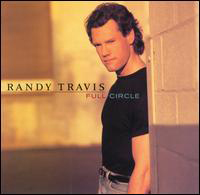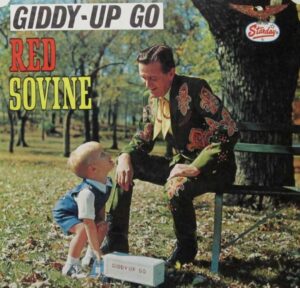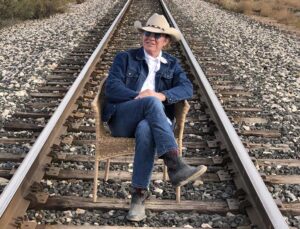Randy Travis’ dream of becoming a country music star didn’t come easy.
The young man who, in 1980, sent demo tapes to every record label in Nashville met rejection at every turn. On Music Row, where the dreams of so many performers — those falling into the “classic country” genre today — came true, producers deemed Randy Travis as “too country” for audiences’ tastes. The orchestrated “Nashville Sound” experiment promoted songs featuring strings, background singers, glitter and outright abandonment of country music’s famed Nudie Suits. A country boy from North Carolina didn’t stand a chance in a genre built by other country boys and girls armed with only their voices and a guitar.
Travis was a troubled youngster who had several run-ins with the law. His infractions — while minor — painted the portrait of a habitual offender. Between his appearances in court, Travis worked as a cook in a Charlotte, North Carolina, nightclub. Its owner, Elizabeth Hatcher, placed the young singer on stage as a teenager. Eventually, a judge released Travis from yet another criminal charge but placed him under the guardianship of Hatcher. It was a match made in heaven.
With a woman with funding to back up the effort, Travis moved to Nashville. With Hatcher’s promotional work, he recorded a few songs beginning in 1978, but none met with even moderate success. Five years later, Hatcher secured a record deal for Travis with Warner Brothers. While his first single, “On the Other Hand,” barely charted, his follow-up release, “1982,” reached the Top 10 on country charts. With some name recognition and a bona fide hit under his belt, Warner Brothers took a chance and re-released “On the Other Hand” a year later. The song shot to No. 1 and became one of several signature songs Randy Travis released during his career.
Over the next 15 years, Travis released 20 albums and 50 singles, 16 of which rose to No. 1 on the country charts. His list of awards is impressive. At the height of his career, Travis won Grammys and country music awards in most categories. Eventually, he was enshrined in the Country Music Hall of Fame.
For a performer like Randy Travis — one who seemed to appear out of nowhere and then remained atop the charts for 15 years — country music historians have difficulty agreeing on a signature song. “On the Other Hand” ranks high on the list, as do chart-toppers like “Diggin’ Up Bones,” “Deeper than the Holler” and perhaps his most recognized hit, 1987’s “Forever and Ever, Amen.” Travis even dropped a couple of trucking songs into his discography, with little fanfare. None became singles, nor are they recognized by many who aren’t hard-core Randy Travis fans, or at least fans who scour the backs of CDs looking for trucking music. One such song, “Highway Junkie” found a spot on Travis’ 1996 album — his last album for Warner Brothers — fittingly titled “Full Circle.”
A listen to “Highway Junkie” reveals it to be THE trucker’s trucking song. Topics covered include everything from vices, the pressures of landing on schedule, the lonesome road, lost love and even “Smokies,” referred to as “State Boys” by Travis. He wastes no time getting to the heart of the matter as he describes his run as bolstered by “100 cups of coffee, 500 hundred cigarettes, 1,000 miles of highway, and I ain’t forgot her yet.” It’s “forgetting her” that, like so many trucking songs, becomes the focus of “Highway Junkie,” a theme Travis emphasizes as universal to the truck-driving profession with the short line, “A trucker’s heart gets broke.”
Even his run-in with the “State Boy” near Nashville is met without a concern for driving over 100 mph. Travis’ response to the trooper’s question, “Where’s the fire son?” does nothing but bring up more thoughts of lost love:
I said, “Man there ain’t no fire
I’m just runnin’ from a flame
So go on and write your ticket, man
But I ain’t the one to blame.”
A couple hundred miles west of Nashville, Travis inserts two of stanzas paying homage to his musical influences, both kings of country and rockabilly music who will always hold a special place in most truck drivers’ hearts.
So, I rolled on down to Memphis,
I had nothin’ left to lose,
Wanted to hear some rock ’n’ roll,
But all they played was blues,
I didn’t wanna hear no blues.
So, I went to call up Elvis,
But Roger Miller grabbed the phone,
He said drive that 18-wheeler boy,
You’re the king of the road,
Said I was the king of the road.
Nothing in “Highway Junkie” is original; in fact, most of the lyrics are little more than a rehash of other songs with similar themes, with minor twists on phrases describing Travis’ journey across Tennessee. What sets “Highway Junkie” apart from other heartbroken trucker songs is the chorus. Travis introduces a unique metaphor — to my knowledge an original — when he sings two lines, followed by a closing line that’s a takeoff from many trucking and road songs, and even a rodeo song or two:
But, them big wheels of rubber,
Gonna rub her off my mind,
Well, I’m a highway junkie
And I need that old white line.
After recording “Full Circle,” in the twilight of his country music career, Randy Travis released two more albums, but for a new label. The pair offered just three combined Top 10 singles. The results were a far cry from Travis’ heyday when 25 of 31 singles reached the top 10, with 22 peaking at No. 3 or higher on the country charts.
The remainder of Randy Travis’ career is well documented, filled with legal troubles, a divorce, a crossover to Christian music and a debilitating stroke. It was almost as if Travis’ youthful transgressions had returned to mar his successful career.
Travis was never a force in the country subgenre of trucking music, but he did leave a couple of songs as a legacy. After all, with a career filled with songs that appealed to most listeners, it only fits that Travis offered truck drivers a little something to remember him. But history will remember Randy Travis as one of a handful of traditional singers who saved country music from the “Nashville Sound.”
Until next time, remember when you’re driving a back road somewhere in America, “Deeper than the Holler” is a winding strip of highway — a steep grade down and another steep grade out.
Since retiring from a career as an outdoor recreation professional from the State of Arkansas, Kris Rutherford has worked as a freelance writer and, with his wife, owns and publishes a small Northeast Texas newspaper, The Roxton Progress. Kris has worked as a ghostwriter and editor and has authored seven books of his own. He became interested in the trucking industry as a child in the 1970s when his family traveled the interstates twice a year between their home in Maine and their native Texas. He has been a classic country music enthusiast since the age of nine when he developed a special interest in trucking songs.









